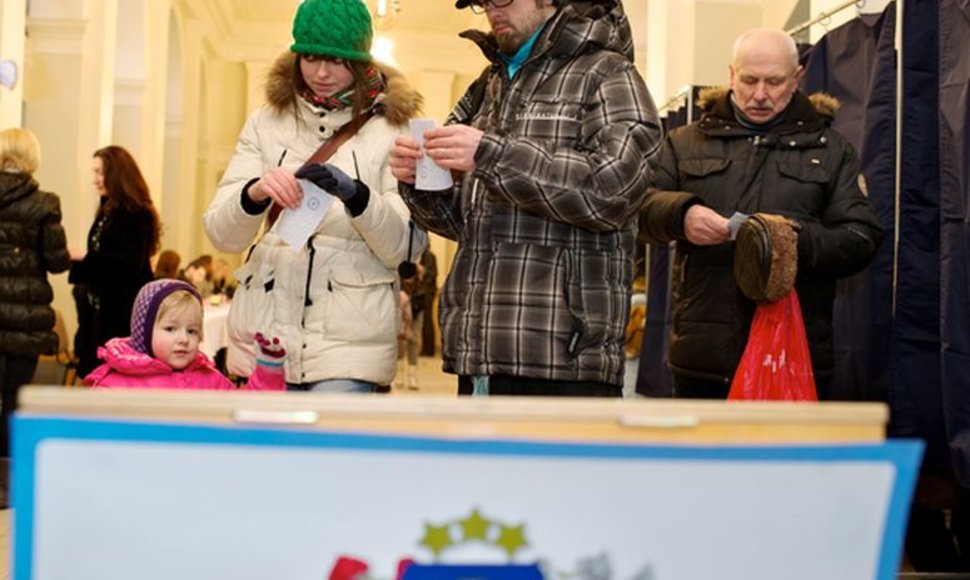Saturday night, streets in Riga were full of young people. Those interviewed expressed their joy about the outcome of the referendum, claiming they expected such results.
"We went to the polls, we expressed our opinion, the turn-up made us very happy," three young women in downtown Riga said. They all voted against the proposal to make Russian a state language.
"It is one country, how can we sing national anthems in two languages, Latvian and Russian?" asked a couple of Latvians.
Opinions voiced on national TV channels were diverse. Some demanded rhetorically whether one could envisage a possibility of a similar referendum in Russia, if it had a substantial Latvian population. Most probably not.
Martins, employee in a hotel, said he expected such results from the very beginning. "I went to vote and I'm very happy that so many people turned up - more that 1 million Latvians came to the polls, or over 70 percent of all voters. I voted against the proposal, one country - one language," the Latvian said.
Martin says he has many Russian-speaking friends and that his vote was cast against a language, not against a nation.
Heated TV debates continued all Saturday night. Many Latvian politicians wondered how Latvia's Russian residents, who had lived in the country for decades, still hadn't learned Latvian.
The authorities have recently launched an educational program, teaching Latvian for free. The program was very popular and is to be extended. A Russian-speaking woman said on TV she understood Latvian and knew many words; however, it was her fear of not speaking properly that prevented her from using Latvian and choosing to communicate in Russian instead.
The turn-up was very high among Latvian citizens living abroad. A huge crowd was queuing outside the country's embassy in London, people having to wait 3 to 4 hours to cast their votes. Latvians in Spain were equally active, with majority of them voting in favor of the Russian language.
It is being feared, however, that the results of the referendum might divide the nation and trigger protests.
According to Latvian electoral commission, the referendum was attended by 70.37 percent of voters. 22.5 percent voted in favor of making Russian a second state language while 77.22 percent were against.
In Latvia's second largest city, Daugavpils, over 85 percent voted for the proposal. Over half of the city's 102.5 thousand population are Russians.
Countrywide, ethnic Russians make up 27 percent of the total population. According to the 2000 census, 37.5 percent of Latvia's population speak Russian as their native language, whereas Latvian was recorded as the mother tongue for 58.2 percent.


















